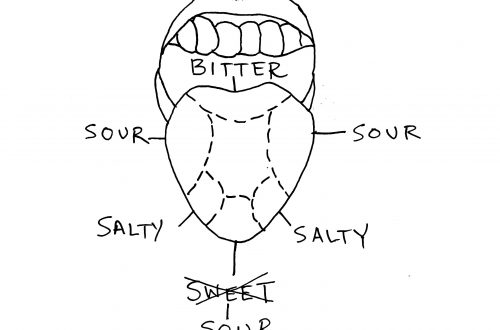What’s actually causing the restaurant labor shortage in America
By Jonathan Ammons
Jon’s piece appears in episode 27 of The Dirty Spoon Radio Hour.
By now we’re all quite familiar with them. Those signs on the restaurant doors going viral on the internet: “Closed today, short staffed. No one wants to work anymore.” At this point, as the whole world is starting to reopen in the waning days of the pandemic, the restaurant industry is wrestling with what many are calling the most serious labor crisis in recent history.
But what if it isn’t a labor crisis at all?
Back in 2017, I wrote a piece for the Mountain Xpress called Falling Short: What’s Causing Asheville’s Labor Shortage. At the time, the unemployment rate was just 3.8%, and restaurants across Asheville were having a really hard time finding staff for the back of house. And while it seemed easy to chalk it up to being a simple labor shortage, that no one wanted to work anymore. It, like most things in this world, simply wasn’t that simple.
Oddly enough, that 2017 article was the fulfillment of a kind of prophecy I’d made in an article the previous year. That one was about the industry’s growing threat of over saturation. That there were so many restaurants popping up in a small city like Asheville that the threat wasn’t a lack of customers to go around. It was — because of the rising cost of housing — going to be a lack of staff.
So fast forward four years, and that labor shortage never went away, and that’s when the pandemic struck.
Let’s just start by making a couple things crystal clear out front: the labor shortage that the restaurant industry is experiencing across the country right now is not caused by unemployment bonuses. According to a study by the San Francisco Reserve Bank, only 1 in 28 people have turned down a job offer that they would normally accept to stay on unemployment. That’s around 3.5%, or 322,000 people nation wide. In other words, nearly exactly the amount of people on unemployment in 2017, when I wrote that article. To put that in a local context, in a city like Asheville, if that 3.5% holds, it would mean a meter 250 people aren’t going back to work. That’s it!
Let’s just start by making a couple things crystal clear out front: the labor shortage that the restaurant industry is experiencing across the country right now is not caused by unemployment bonuses.
Secondly: this labor shortage is not caused by people not going back to work. It’s caused by people not going back to the SAME INDUSTRY where they USED to work.
But don’t take my word for it.
“So when Steve told me that we were shutting down the restaurant, I was already, and all of us there were deeply, deeply burnt out,” says Adam Rawlings.
He was a 15-year veteran of restaurant kitchens when the pandemic struck and shut down Aux Bar, a favorite Asheville spot that permanently shuttered. So what did Adam do with all of that spare time during lockdown?
He started his own woodworking company, Crow Dog Creations. “And I had kind of been toying with the idea of this word working idea. So my plan was to just keep working in kitchens and slowly phase myself out from middle management, slowly phasing into the wood working. Starting it as a side gig, and slowly growing it until it could actually support me. But then when Aux Bar closed, I just decided, this is my shot, lets see if I can make this work. I just didn’t have the heart to go back into the restaurants. It wasn’t really for fear of COVID or anything like that, it was a quality of life decision.”
And Adam isn’t the only one I talked to who has left the kitchen for greener pastures. After posting on several Food & Beverage group social media threads asking if anyone had changed careers during the pandemic, I was absolutely inundated with responses! Like Johana Kearns in DC. She had 30+ years in the restaurant game, she jumped ship too.
“It’s been almost six months since I’ve worked, and the entire time I was working, I was dabbling and dipping my toes into other interests. The biggest of which is green roofs, and living walls, and landscape design,” says Johanna. “So I’m starting my own business doing those things, and then also being the main point person for a friend who has a home staging business — when people put their homes on the market, we bring in all of the furniture and decorations and set it up for photos and for people when they come to do a walk through of the house.”
Clyde Singleton, who had already left a career as a pro skateboarder to become a chef, changed careers yet again.
Taking the pandemic lockdowns as an opportunity to move from Winston-Salem back home to Jacksonville Florida Clyde opened a clothing line called Ollie Llama, started a skateboarding podcast, WCRP, and is running pop-ups with his own food cart, Cooking with Clyde.
“I just knew I deserved something better than that,” he says. “I didn’t know what it was, but I was like, I know I’ve got a little talent, I like to work, and I shouldn’t be stressing out on a place to stay when I’m working two jobs. There’s just more out there for me. And that got me where I needed to be. I think it was a very important lesson for me, too, because, had I not left, a lot of things that are happening now wouldn’t be happening. I’d probably just be very complacent in what I was doing, which wasn’t bad, but I just had bigger goals.
“It’s like skateboarding, man, I was in Florida and I was like, I gotta get out of here! I’ve got dreams like everyone else! I don’t want to be that old dude cooking on the line, all mad! No, no, no! I’ve worked with too many of them dudes! Old dudes in there, mad as hell, slamming around hamburger patties… nah, man, that will not be me!” Clyde laughs. “I like what I do, I’m not trying to get a truck or anything. That’s just a headache, you know? The way I can do business and the people that I do business with, it works perfect. I go in, I knock it out, and I get out of there! I don’t need a big truck, I don’t need all of that stuff.”
It seems to me that if we live in a society that has constantly told people to “pull themselves up by their bootstraps” or that if they don’t like the wage they are earning, then they need to find a better job or make one for themselves, that we shouldn’t get angry when they actually do just that.
“So people have left Asheville because the cost of housing was so expensive. People have left the restaurant industry because they didn’t have job security during the pandemic, so they needed to find other job options. People have chosen to go back to school, explore other industries, find other towns to live in where the rent isn’t so high. And one of our business owners who is living wage certified, pointed out to us that there’s just a lot of restaurants and hotels looking for workers all at the same time, and in his opinion, this is not a new issue,” says Emma Hutchins. She’s the living wage program coordinator for the Center for Just Economics. “We are not calling this a labor shortage, we are calling this a wage crisis. I do think there is a good chance that both issues are happening simultaneously, but there is this elephant in the room, which is that previously, workers were being told that they were disposable. That if they didn’t want their job, someone else wanted it. Then there was a pandemic where workers were told that they were essential and they were heroes for risking their lives to keep basic services open.
“But now workers are being told that they are lazy for not wanting to go back to work. So I do think this narrative around workers has been really wild for the past few years, and I think people now see that workers in this moment have a lot of power, they have a lot of choices, and they are taking their time and choosing carefully where they want to work. Because they can wait for a job with better wages, they can opt for job where they are treated with dignity and respect, and I think workers are taking advantage of having options and choices available to them.”
Overall, this shortage doesn’t have a single cause.
James Sutherland is the owner of Blue Dream Curry. He says they’ve had staffing issues for years, despite offering $17/hr and a week’s paid vacation. James eschews the tendency to oversimplify these kinds of problems, noting that this isn’t simply a wage issue.
“It just seems like everybody reopened at the same time, and there are a bunch of new places, so those two things in combination are what the problem is,” James says. “And then there’s also just a lot of people moving on from this industry in general, for good reason. It’s happened with a lot of industries over the years.”
“I think the problem here is that they keep building hotels, they keep pushing the tourist business, and obviously that’s a big money maker for a lot of people, and it’s great that they are doing that. But you can’t do that without having an infrastructure behind it. It’s just a matter of, you keep building hotels and you don’t build it with any affordable housing, and you try to push this tourist business, but you don’t have any kind of late night buses or anything for people working in bars. And now Uber and Lyft are kind of hard to come by because everybody is doing food delivery and they don’t want to do the taxi services anymore. It’s definitely a time for this city to take a little more of a stand, it’s just that money always talks, and it just seems like, even with the federal government, there has to be some kind of money making incentive for anything to happen.
James is right, money talks. And there’s been substantial pushback among restaurant owners to raising the minimum wage.
But as more and more workers flea the industry, even the $17 James is offering might not be enough.
“$17.30 an hour for living wage sounds really high, and it’s actually very conservative,” warns Emma Hutchins. “The way we calculate the living wage is using a four year average of fair market rent data from HUD, and so that means that the number we plug into our formula isn’t the 2021 fair market rent, it’s an average of the last four years. If we had plugged in the 2021 numbers into our formula, the living wage rate would be closer to $21 an hour. That is for a one bedroom apartment for a single individual with no dependents. So immediately, if you have a child, $17.30 is not a living wage for you. So this is a conservative number. The living wage certification program is meant to be an educational tool to help people understand where the wage floor needs to be. Because the minimum wage for the United States hasn’t increased — it will be 12 years in July, the last time the minimum wage increased for the United States.”
“We are seeing states go ahead and implement minimum wage bills that are increasing the minimum wage in cities and states in other parts of the country. There is a bill in North Carolina advocating for that change here in the state, although I don’t expect to see it pass. So because we’ve had this $7.25 minimum wage for so long — which isn’t enough for anyone working 40 hours a week living anywhere in the country to pay their rent — we have to have a better understanding of a reasonable wage floor,” she adds. “I think people are getting more comfortable using this $15 an hour number. But by the time it takes effect, that actually isn’t going to be an equitable wage floor already! So for Buncombe County, $17.30 is still not a thriving wage, that is the least that you can make in Buncombe County and afford your basic needs, your basic cost of living, without living in poverty. It’s not enough to save, it’s not enough to go on vacation, it’s just enough to not be in poverty if you are a single individual with no children.”
Beyond wages, Emma notes that another key reason for the restaurant exodus is the housing. Remember back in the beginning of this story, when we talked to Adam and Clyde? Both of them have moved out of Asheville at some point because of housing: Adam to the outskirts, and Clyde to Winston-Salem and eventually Florida.
Between 2010 and 2020 the rent in Asheville has seen a 58% rise, and currently sits atop the list as the most expensive housing cost in North Carolina. Add to that the fact that Asheville’s wages are 15% lower than the National average, and you start to understand the sudden exodus of the city’s restaurant workers.
So if workers can’t afford to live in Asheville, what does that mean for the future of the restaurant industry that draws people to Asheville in the first place?
“You can’t just look at wages without looking at housing! And it is our hope that Asheville business owners will get involved with this fight for affordable housing, because, I think that we all have a great stake in the ability to continue living here, working here, owning businesses here… it’s going to be contingent on this affordable housing question,” says Emma.
“Someone recently brought it to my attention that Charleston has had a labor shortage for a really long time, and the norm has become that businesses are just closed two or three days a week. Workers decide where they want to work, if they don’t like it, they can move on to the next place. And it just never occurred to me that these issues can be permanent. I’ve always heard this myth of a housing bubble, and I don’t think that the bubble is going to pop. This is basically a resort town now. So I think that we need to, as a community of people who live here, treating these issues as if they are not temporary. They are not just because of the pandemic. These are permanent issues until we advocate for real solutions to them. So I think that your question as to whether or not business are going to be able to do it is a great question. Obviously our local businesses are part of what makes this town so special, it’s part of the reason why people want to come here. So we’re going to have to advocate for change in order for them to be able to sustain and survive.”
When the pandemic began, economists and talking heads kept calling it the Great Reset. Saying that all of those economic shutdowns and lockdowns around the world were poised to reboot our industries and economies. It would be foolish not to expect the game to change after someone resets the board.
For generations, the restaurant industry has been a place where competent, skilled workers were raked over the coals night after night. It should come as no surprise that given the long break of the pandemic, many are choosing not to do it anymore, and have found other things to do instead.
I’ve spent the last decade writing about wage issues, about sexual harassment in the restaurant industry, about substance abuse in the restaurant industry, about how hard it is on people, and how if we don’t do something about those things, the entire industry could be at risk. Well… Perhaps this is our reckoning. And you cannot say, as a society, that we don’t deserve it for letting it be this wrong for so long.
About the Author
Jonathan Ammons is the Editor in Chief of The Dirty Spoon.





